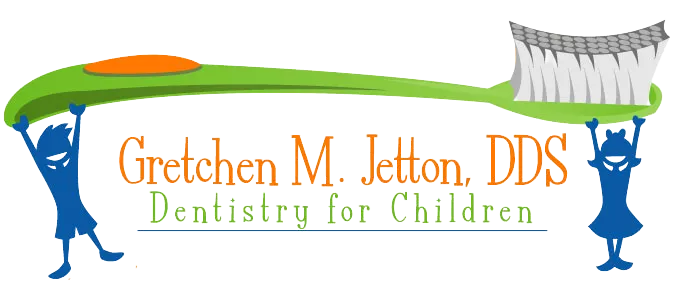A knocked out tooth or bitten tongue can cause panic in any parent, but quick thinking and staying calm are the best ways to approach such common dental emergencies and prevent additional unnecessary damage and costly dental restoration. This includes taking measures such as application of cold compresses
Read more- Home >
- Articles
-
Emergency Care
-
Extractions
General Procedure When restoration procedures such as root canal therapy, crowns, or fillings are not enough to save a tooth, it may need to be pulled, or extracted. Tooth extraction procedures today are far less painful than ever before, thanks to powerful anesthetics and sedatives. In many cases,
Read more -
Fillings
Frequently asked questions: dental fillings Are dental amalgams safe? Is it possible to have an allergic reaction to amalgam? Is it true that dental amalgams have been banned in other countries? Is there a filling material that matches tooth color? If my tooth doesn't hurt and my filling is still in
Read more -
Flossing
What is flossing? Flossing is a method for removing bacteria and other debris that cannot be reached by a toothbrush. It generally entails a very thin piece of synthetic cord you insert and move up and down between the sides of two adjoining teeth. Why is flossing important? Many dentists believe
Read more -
Fluoride
For decades, fluoride has been held in high regard by the dental community as an important mineral that strengthens tooth enamel, which thereby helps to prevent decay of tooth structures. Water fluoridation is endorsed by nearly every major health and safety-related organization in the world. Communities
Read more -
Fluoride Facts
For decades, fluoride has been held in high regard by the dental community as an important mineral that is absorbed into and strengthens tooth enamel, thereby helping to prevent decay of tooth structures. In nearly every U.S. community, public drinking supplies are supplemented with sodium fluoride
Read more -
Fluorosis
Fluorosis is a condition in which your body has been exposed to too much fluoride. In normal doses (typically found in a safe drinking water system and an ADA-approved toothpaste), fluoride is a healthy compound that promotes strong teeth, which has the ability to fight cavities and other problems. But
Read more -
General Dentistry
The first line of defense against oral health problems In general dentistry, the dentist is the primary care provider for patients of all ages and is responsible for the prevention, diagnosis and treatment of a wide variety of conditions, disorders and diseases affecting the teeth, gums and maxillofacial
Read more -
Gum Disease (Gingivitis)
Gingivitis is the medical term for early gum disease, or periodontal disease. In general, gum disease can be caused by long-term exposure to plaque, the sticky but colorless film on teeth that forms after eating or sleeping. Gum disease originates in the gums, where infections form from harmful bacteria
Read more -
Infection Control
Standards and Best Practice With all of the increased media attention on infection outbreaks such as AIDS and multi-drug resistant strains of viruses, it's no wonder people have heightened concerns about infection control during a medical procedure. Gloves, gowns and masks are required to be worn
Read more -
Introduction
Does mercury in the silver fillings in your mouth pose any long-term health risks? Does fluoride, in spite of everything we've been told since childhood, actually cause more harm than good? What does the latest research reveal about tobacco use on your overall oral health? This section is dedicated
Read more -
Jaw Disorders
People who grind their teeth can sometimes develop a serious problem with their jaw, which left untreated, can adversely affect the teeth, gums and bone structures of the mouth. One of the most common jaw disorders is related to a problem with the temporomandibular joint, the joint that connects your
Read more -
Jaw/TMJ
People who grind their teeth can sometimes develop a serious problem with their jaw, which left untreated, can adversely affect the teeth, gums and bone structures of the mouth. One of the most common jaw disorders is related to a problem with the temporomandibular joint, the joint that connects your
Read more -
Lacerations and Cuts
Any kind of cut to your face and the delicate soft tissues inside your mouth should be addressed immediately in order to prevent further tissue damage and infection. If a traumatic injury involves a broken facial bone such as the jaw, nose, chin or cheek, maxillofacial surgery may be required. With
Read more -
Latex Allergy
Naturally occurring latex has been linked in recent years to allergic reactions in people who use such products as latex gloves. The proteins in the latex, which can also become airborne, can cause problems in vulnerable people such as breathing problems and contact dermatitis. Some allergic reactions,
Read more -
Managing Pain
There are many methods for relieving oral pain. They include: Ice packs on the affected area. Avoiding hard candy or ice. Avoiding sleeping on your stomach. Dentists use a wide array of pain management tools, including: Anesthetics such as Novocaine. Analgesics such as aspirin
Read more
Contact Us
We look forward to hearing from you
Hours of Operation
Our Regular Schedule
Monday:
8:00 am-4:00 pm
Tuesday:
8:00 am-4:00 pm
Wednesday:
8:00 am-4:00 pm
Thursday:
8:00 am-4:00 pm
Friday:
Closed
Saturday:
Closed
Sunday:
Closed
